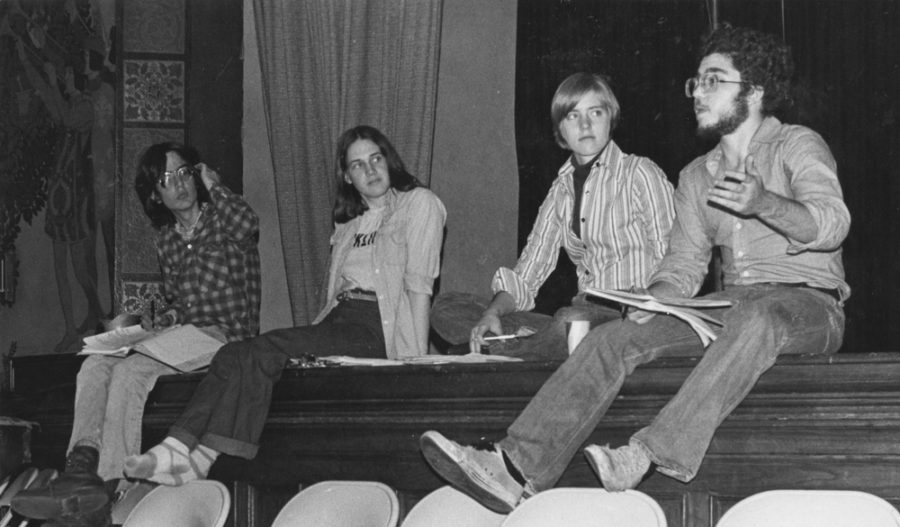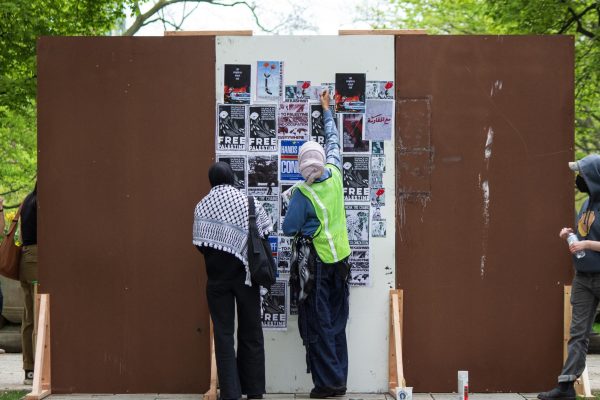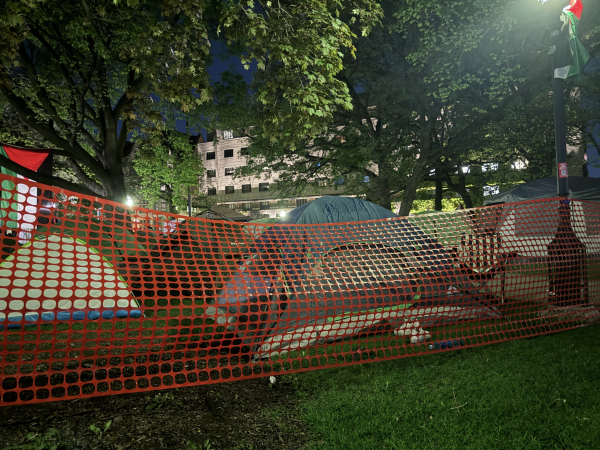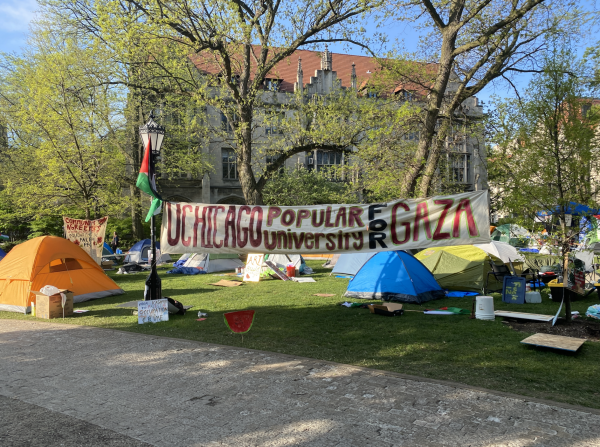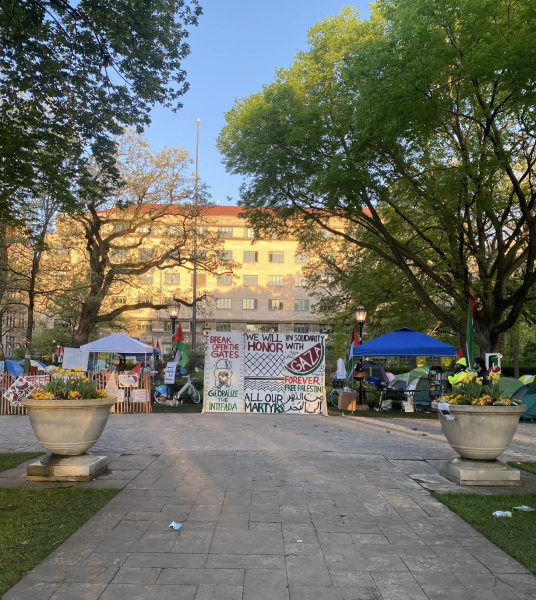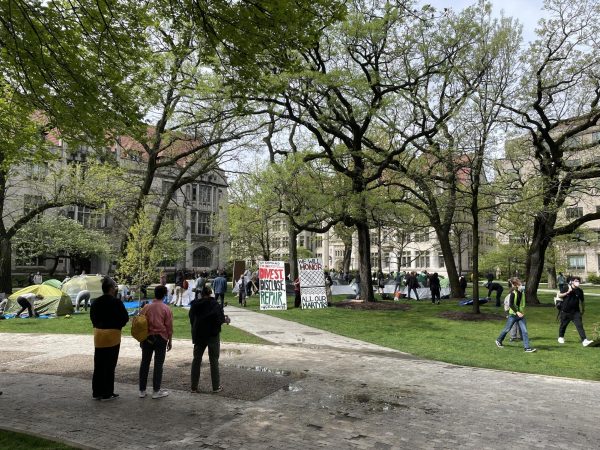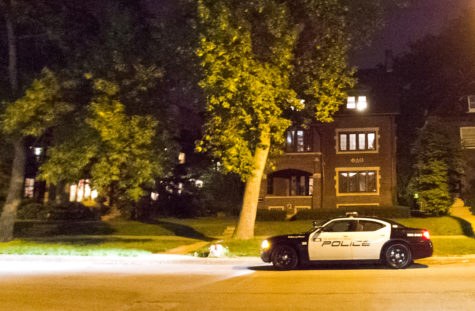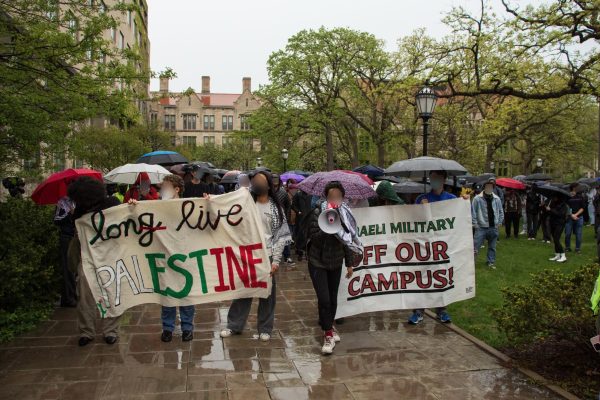Undergraduate Student Government Stresses Stress
While stress culture at the University is not an uncommon subject, a select few—or rather, an elected few—bear the brunt of it for the sake of the rest of the student body.
Meeting of University of Chicago Student Government in Ida Noyes Hall. Dated between the 1960s and 1970s.
January 26, 2023
“I’m Jefferson Lind. I’m a third-year. I am the executive vice president of Undergraduate Student Government, and I am often stressed out.”
While stress culture at the University is not an uncommon subject, a select few—or rather, an elected few—bear the brunt of it for the sake of the rest of the student body. Undergraduate Student Government (USG) consists of approximately 110 people, with members working in the cabinet, College Council (CC), the Student Advocate’s Office, committees, subcommittees, and other staff positions.
Like many of his peers at the University, Lind is an ambitious student with interdisciplinary interests. In addition to serving USG, he is majoring in economics and psychology and minoring in cinema and media studies. He also performs with University Theater and is a former cast member and production team member for Survivor: Chicago.
While Lind acknowledges that much of his stress comes from juggling his various responsibilities, he believes that students may be more prone to burnout in the current post-COVID-19 academic environment.
“We are still figuring out how work rhythms work,” Lind said. “Especially for [current] second- and third-year students, we don’t have a vision of what UChicago was like before COVID-19 at all. I think, anecdotally speaking, there are some growing pains. How does going back to normal look when we don’t know how normal looked in the first place?”
In an effort to alleviate the stress of the student body, USG is pushing for better academic advising services, especially for growing majors such as economics and computer science.
“I think a lot of people might not be able to zero in on pursuing their passions right now because of or difficulty of accessing good advice and guidance on what resources the University has to offer,” Lind said.
USG has also been making efforts to mitigate the stress of its own members. According to Lind, the organization has seen several resignations in the past due to the high level of commitment it requires and a history of “conflict.” College Council Jordyn Flaherty, a second-year, said that the structure of any student government makes it an inherently challenging environment, so it is important to check in with members periodically.
“You have a lot of people who are very passionate about the student body and about making change,” Flaherty said. “They ran for office, so right off the bat you have so many people who have big personalities coming together to talk about issues on campus.”
One of the biggest ways in which the organization has undergone change to address this issue is adopting a new constitution. After a referendum to split CC and Graduate Council (GC) was passed in 2021, a constitutional turnover was also introduced. USG is currently in its third year of the transition process.
“We rewrote a new constitution for USG because of conflicts that existed in the past and inefficiencies in the system and ways that we saw people consistently find themselves disillusioned with the work of USG,” Lind said.
In addition, members have been advocating other tangible ways to combat stress as much as possible. For example, Trustee and Faculty Governance Liaison Tyler Okeke, a fourth-year, worked with a group of USG members to design an moderation and management system for internal conflict. Flaherty and College Council Chair Connor Lee, a third-year, also spearheaded a newly reinstated program in which they met with every member of CC to discuss their goals and interests.
“We figured that if we get to know people, they’ll feel comfortable kind of talking to us about their opinions on student government,” Flaherty said. “We wanted to connect people to each other who are working on similar agendas and build camaraderie.”
Lind recognizes that stress is a general, and somewhat inevitable, issue. However, some members are making it their priority to focus on building a healthier and happier space for current and future members. “These are very broad issues, but we’re attacking it in the little ways we can,” he said.


